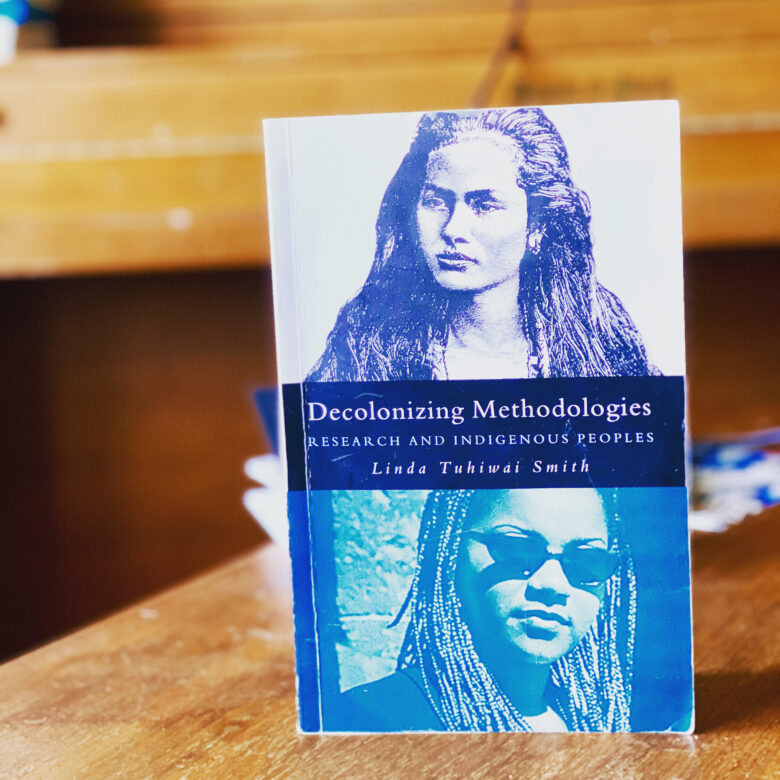

In thinking about knowledge and research, however, these are important terms which underpin the practices and styles of research with indigenous peoples. They are also words which are used in particular sorts of ways or avoided altogether. They are words of emotion which draw attention to the thousands of ways in which indigenous languages, knowledges and cultures have been silenced or misrepresented, ridiculed or condemned in academic and popular discourses. They are words which tend to provoke a whole array of feelings, attitudes and values. I have selected these words because from an indigenous perspective they are problematic. These terms may seem to make up a strange selection, particularly as there are more obvious concepts such as self-determination or sovereignty which are used commonly in indigenous discourses.

In this chapter the intention is to discuss and contextualize four concepts which are often present (though not necessarily clearly visible) in the ways in which the ideas of indigenous peoples are articulated: imperialism, history, writing, and theory. This is a dimension that indigenous peoples know and understand well. The lived experiences of imperialism and colonialism contribute another dimension to the ways in which terms like ‘imperialism’ can be understood. ‘The talk’ about the colonial past is embedded in our political discourses, our humour, poetry, music, story telling and other common sense ways of passing on both a narrative of history and an attitude about history.

We have become quite good at talking that kind of talk, most often amongst ourselves, for ourselves and to ourselves. Indigenous peoples as an international group have had to challenge, understand and have a shared language for talking about the history, the sociology, the psychology and the politics of imperialism and colonialism as an epic story telling of huge devastation, painful struggle and persistent survival.

Imperialism still hurts, still destroys and is reforming itself constantly. While the project of creating this literature is important, what indigenous activists would argue is that imperialism cannot be struggled over only at the level of text and literature. In a literary sense this has been defined by writers like Salman Rushdie, Ngugi wa Thiong’o and many others whose literary origins are grounded in the landscapes, languages, cultures and imaginative worlds of peoples and nations whose own histories were interrupted and radically reformulated by European imperialism. Writing about our experiences under imperialism and its more specific expression of colonialism has become a significant project of the indigenous world. It is part of our story, our version of modernity. Imperialism frames the indigenous experience.


 0 kommentar(er)
0 kommentar(er)
